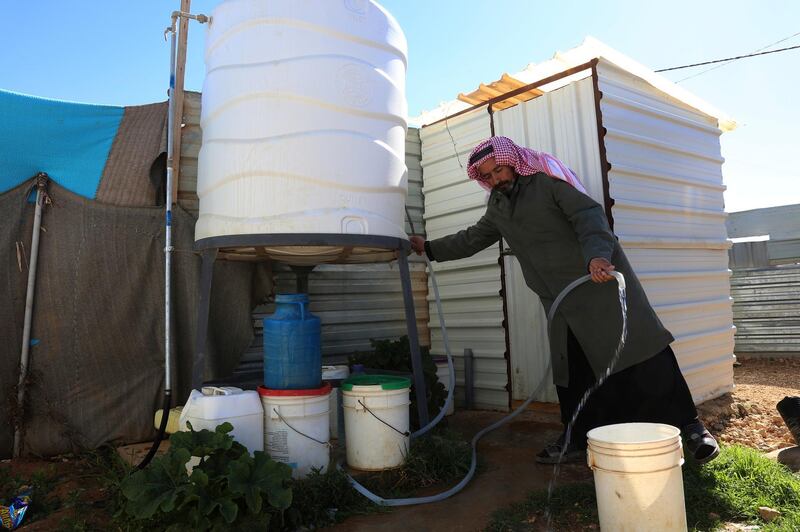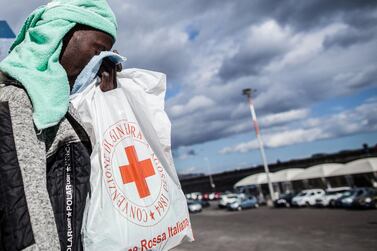Lebanon’s economy could have “imploded” without cash based assistance schemes for Syrian refugees, according to the head of one of the largest aid programmes in the world.
“The Lebanese economy could have imploded if we weren’t in Lebanon doing what we do with cash,” said David Beasley, Executive Director for the World Food Programme (WFP).
Speaking in front of a committee at the UK’s parliament, Mr Beasley said he initially had reservations about giving cash based transfers to refugees.
“I questioned how effective [cash based system] was, getting into the hands of extremist group,” said the WFP chief.
Mr Beasley said he is now a “firm believer” in giving cash or cash transfers, often involving handing refugees a stipend pre-loaded on a debit card, and plans to spend $2.2 billion on cash based schemes in the region.
While critics in Lebanon have asked him to “cut off the money” to Syrian refugees, Mr Beasley is adamant of the benefits Syrian refugees provide to local economies. His reply:
“One third [of cash spent by Syrians] is used to buy products grown locally. One third is processed locally and the other comes from the international market in the Lebanese economy,” he said.
Cash transfers also minimise the impact of mass migration to bring a “common way” of life those living in camps.
The World Food Programme has handed out 600 million dollars of cash so far. A similar scheme is run by the UN’s humanitarian agency.
Commenting on the response of international leaders to humanitarian crisis in years gone by, the WFP chief accused the international community of being blinded by short term goals and neglecting root causes to social and political problems.
“The international community neglected Syria”, he said.
“Everybody waited too late. France talk multilateral but never give us any money”.
He believes Syrians displaced by conflict have the urge to return home.
"The Syrian doesn’t want to be in London, Paris or Berlin,” said Mr Beasley. “The Syrian will move 3, 4, 5, or 6 times. But people don’t want to leave their home. If you give them any reason of hope, they will stay home”.
He said it costs 50 cents to support a Syrian in Damascus, compared to 50 euros per day to support a displaced Syrian.
The charity chief warned that some refugees could seek alternative ways of feeding their children.
“I’ve talked to more women that said ‘my husband didn’t want to join ISIS, but we haven’t fed our children in 2-3 weeks, what are we to do?’”.
Studies have shown that foreign aid in the form of cash transfers to debit card could improve the health of refugees, while giving them greater control over their spending.
The positive impacts of cash transfers were recognised by the Independent Commission for Aid in a review published last year.
Charlie Mason, a humanitarian adviser, has witnessed the benefits of cash transfers in Sudan, where the World Food Programme supports people displaced by conflict or hunger with monthly payments of about £5 a person.
“This [cash transfers] boosts the local economy, gives people back the right to choose how they support themselves and their families, and allows us to spend our money more effectively,” said Mr Mason.
Mr Beasley also criticised the United Nations for being a “silo” that needs to be “broken down” in the world of international development.
He praised the UK as “brilliant” in donating to humanitarian causes.
“We’ve got to talk more common sense language and the UK speaks in a more common sense language than anyone else. Particularly in the cash based system (of donations to refugees).”






